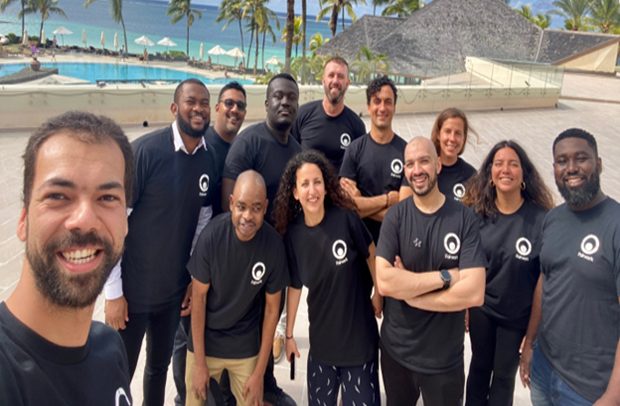Fairwork, Eziban and BlackRide team members
The quality of the working conditions provided by many of the major digital platforms is poor, a recent report has revealed.
According to the 2022 Fairwork Ghana report significant improvements are needed across the Ghanaian platform economy for workers to be able to access fair working conditions.
This was highlighted at a platform manager’s event organized by Fairwork Ghana in Mauritius, which represent the findings of an evaluation of digital labour platforms during 2021 and 2022.
Fairwork Ghana is an action-research project that is coordinated by the University of Oxford in partnership with the University of Ghana Business School.
The founders of two digital labour platforms in Ghana, Eziban and The BlackRide, participated in the Platform Managers Event to further discuss improvement in their operations.
The report highlighted that platforms have the power to choose to provide fair working conditions to workers; bringing to light exemplary practices and policies introduced by certain platforms, which has helped to improve the lives of platform workers in Ghana.
From the 2022 report, The Black Ride, a ride-hailing platform, emerged as an example of a local digital platform that has taken pro-active steps to advance fairer working conditions through its engagement with Fairwork.
Particularly notable are the actions it has taken to fulfil the principle of fair representation. In 2021, the platform publicly recognised worker groups such as the Ghana Online Drivers Union (GODU), and in 2022, it formally signed an MOU with four collective worker groups.
Eziban is another positive example that is highlighted by Fairwork Ghana.
“Eziban was not scored in 2022 due to briefly pausing operations. However, as noted in the 2021 research, the platform has made positive changes to management and representation practices” it stated. “These include committing to engaging in collective bargaining and taking meaningful steps to compensate workers due to their inability to work”.
Also, Eziban has now partially re-launched, primarily in Takoradi and Kumasi, and has demonstrated a willingness to continue improve working conditions for delivery riders in Ghana.
By Nafisa Abdul Razak

